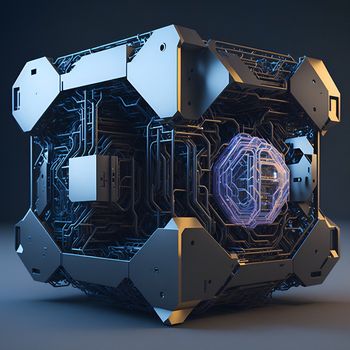
An identity, payment and data security provider has announced the general availability of its “post-quantum ready” PKI-as-a-Service (PKIaaS PQ) platform. This means the company's cloud-based PKI-as-a-Service offering can now provide both composite and pure quantum secure CA hierarchies.
This in turn enables customers to test or implement quantum-safe scenarios and infrastructures. Entrust's solution is the first commercially available platform of its kind. “While the threat of quantum computing is still several years ahead, the transition to quantum-safe algorithms will mean much more than just another crypto refresh cycle. In preparation, today's public key cryptosystems must be converted to new quantum-safe crypto algorithms. This change will be more complex than any migration process that has gone through so far and will affect virtually all digital infrastructure and data. “Organizations should address their post-quantum strategy now and implement the necessary technologies to test and migrate to quantum-safe solutions,” said Greg Wetmore, vice president, software development at Entrust.
PKI as a Service
Backed by over 25 years of expertise and numerous innovations in PKI, Entrust PKIaaS is a cloud-native service that simplifies enterprise PKI implementation and management through pre-built, ready-to-use certificate applications - including WSTEP, ACME, SCEP and a wide range of Mobile Device Management (MDM) solutions. By reducing the number of on-premise services, applications and software, the Entrust PKIaaS architecture also makes it easy to scale on demand. It is designed to seamlessly integrate with existing workflows and applications and provides visibility, control and automation of the environment, along with public SSL/TLS management, via the cloud platform.
Recommendations from global cybersecurity authorities
With the addition of post-quantum cryptography based on standard NIST PQ draft algorithms, customers can issue quantum-safe certificates in minutes using both composite and pure quantum CA hierarchies. This approach is in line with the recommendations of global cybersecurity authorities such as the BSI in Germany and the ANSSI in France. These organizations recommend testing both hybrid and composite certificates as well as those based on pure quantum-safe algorithms.
“Leading national cybersecurity authorities around the world are recommending a hybrid approach to the transition to quantum-safe data protection. The use of hybrid or composite certificates ensures protection in the form of classical and quantum-resistant cryptographic algorithms. With the current product launch, Entrust can support this transition and offer fast, scalable certificate generation and management. This approach also improves enterprise Zero Trust implementation and maturity by protecting sensitive data from 'harvest now, decrypt later' threats. And it ensures that digital security infrastructures remain secure even when the quantum threat has become real,” adds Wetmore.
More at Entrust.com
About Entrust
By creating trusted identities, payments and data, Entrust is committed to secure transactions in an ever-changing world. Entrust offers an unmatched range of solutions that secure multi-cloud deployments, mobile identities, hybrid work, machine identity, electronic signatures, encryption and more, and enable protected transactions.
Matching articles on the topic
